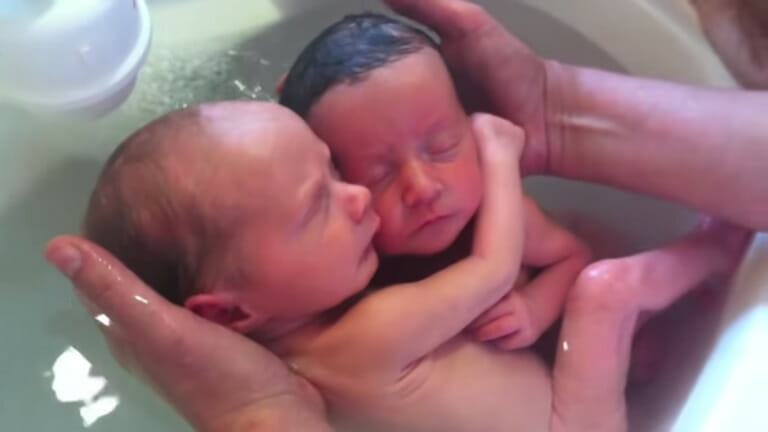Having a twin can be an incredible thing, having someone who’s always there for you right from the start of life, a bond that lasts a lifetime
One incredible video shows just how deep that bond is, even starting before birth: two newborn twin boys refused to stop cuddling together like they did in the womb!

In a video that has been viewed nearly 50 million times on YouTube, the babies, less than two months old, receive a bath and keep holding one another, wrapping their little arms and legs around each other.

The twins are receiving a special baby bath, developed by Sonia Rochel, a maternity nurse and grandmother from Paris, France.
The technique is designed for infants younger than two months old because it is meant to replicate the feeling of being in the womb.
This might explain why the twins are so cuddly with one another—they want to be close to each other like they were before being born.

Watch the video below:
What an incredible video! It shows the real loving bond between two twin siblings right from birth.
Share this beautiful story!
